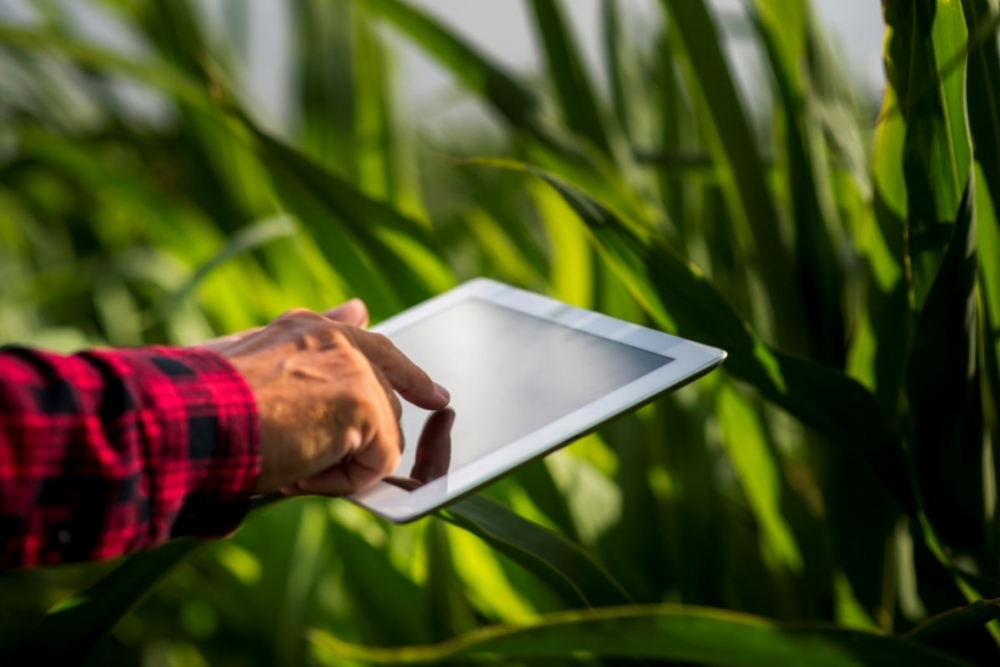

Image: Freepik
Agrosmart, a startup based in São Paulo state, presented its portfolio of solutions during COP28, the UN Climate Change Conference held in Dubai.
Agrosmart, a startup based in São Paulo state, presented its portfolio of solutions during COP28, the UN Climate Change Conference held in Dubai.

Image: Freepik
Agência FAPESP – During COP28, the United Nations Climate Change Conference held in Dubai, United Arab Emirates (UAE), on November 30-December 12, 2023, a Brazilian startup called Agrosmart launched Nexus, a solution designed to convert data into analysis and insights for decision-making support throughout the agribusiness supply chain.
Development of the technology was supported by the FAPESP Innovative Research in Small Business Program (PIPE).
Nexus enables farmers, agro-industrial firms, food producers, trading companies and financial institutions to convert data into intelligence.
Offering features such as risk scoring, market and supply chain intelligence, supply chain ESG indicators, and climate and agronomic modeling, the firm says its technology assures transparency in digital management of value chains, agricultural processes and risk.
“What we saw at COP28 was that the time for action is running out. We must build climate solutions, especially in agricultural and food systems, because food production has the intrinsic potential to generate positive impacts, and technology is a means of realizing that potential,” said Mariana Vasconcelos, CEO and co-founder of Agrosmart.
The climate tech firm serves more than 100,000 producers, monitoring some 48 million hectares and processing over 10 billion datasets. It promises fast insights
based on reliable data in the field and artificial intelligence to make operations more predictable and sustainable thanks to quality information for strategic decisions that reduce operational, socio-environmental and climate risks.
According to its spokespersons, the benefits for users of Nexus include predictability of supply, management of climate, environmental, social and reputational risks, value chain traceability and transparency, and centralization of information and processes via efficient digitalization.
“In addition to the obvious benefits, our products have significant impacts. This was the case with BoosterPro, our climate intelligence platform, and BoosterAgro, our free app, and it will also be the case with Nexus. By helping these corporations make better decisions and manage risk and value chains more effectively, we believe we’re taking a step toward realization of the transition in food production systems via technology,” said Raphael Pizzi, Head of Product and co-founder of Agrosmart.
Expanding client base
With the support of PIPE-FAPESP, the firm developed a system involving automated pest traps and a mobile app that enables farmers to spray crops at the right time and in the right amount in terms of cost-effectiveness and low environmental impact.
Among the many value chains served by Agrosmart are those of açaí juice maker Frooty and coffee trader Sucafina. In 2014 it plans to continue expanding its client base, building strategic partnerships, driving innovation and benefiting the food industry.
Founded in 2014, the firm is present in nine Latin American countries. Its solutions are based on three pillars: climate resilience, value chain transparency regarding Scope 3 emissions, and risk management.
Agrosmart is part of a Corporate Venture Capital (CVC) Program managed by Positivo Tecnologia, a Brazilian technology company that invests in and partners strategically with the startup.
Image from Freepik
Republish
The Agency FAPESP licenses news via Creative Commons (CC-BY-NC-ND) so that they can be republished free of charge and in a simple way by other digital or printed vehicles. Agência FAPESP must be credited as the source of the content being republished and the name of the reporter (if any) must be attributed. Using the HMTL button below allows compliance with these rules, detailed in Digital Republishing Policy FAPESP.





